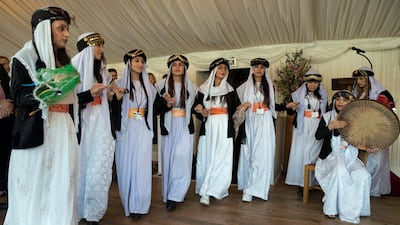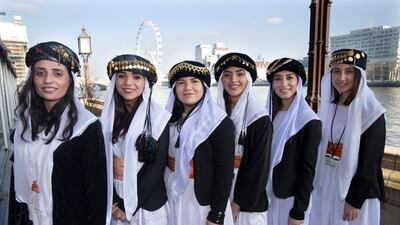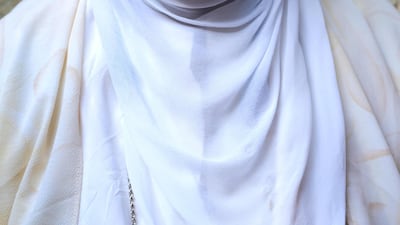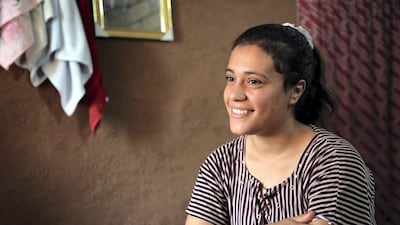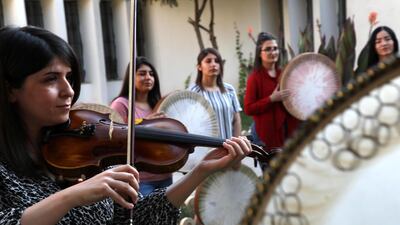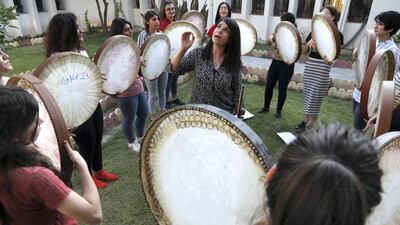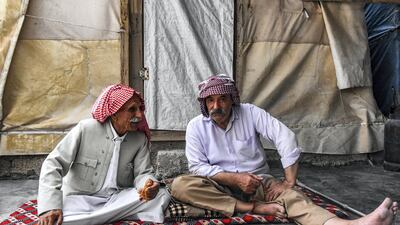A choir made up of Yazidi girls who survived being kidnapped and raped by ISIS has been performing in Britain in a bid to save their people’s culture.
In 2014, thousands of Yazidi men were killed, while Yazidi women and girls were forced into sexual slavery in a genocide carried out by the terrorist group in northern Iraq.
Forced to flee their ancestral lands, most of the 350,000 Yazidi population are living in refugee camps. Many of them have family members who are still missing.
Last year, a British Council-funded initiative started helping the women and girls living in the camps find healing from the horrors they have experienced through the medium of music.
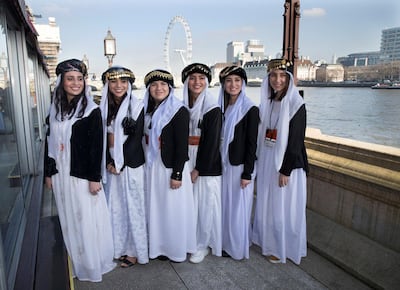
British healthcare and education charity the AMAR Foundation began a project to keep Yazidi music, which was in danger of being wiped out, alive. The foundation, which works in five refugee camps in northern Iraq, began teaching and recording Yazidi music.
The project is being led in the camps by classical violinist Michael Bochmann, who formed the choir of 14 girls who travelled to London to perform.
“Music is central to Yazidi culture,” Mr Bochmann said. “Their religious music is performed by priests known as Qawals. There are only 16 of them left because ISIS tried to kill them all to get rid of their culture.”
The music, which is traditionally passed on orally from generation to generation, is not written down. Earlier this week, the choir visited Oxford University’s Bodleian Library to hand over an archive of Yazidi music to be preserved for the future.
During their stay, the choir and two Qawals also performed for Prince Charles, patron of the AMAR Foundation, and in the Houses of Parliament.

Choir member Dlvin Ahemd, 22, told The National before the parliamentary performance that ISIS had tried to eradicate the Yazidi people.
“We will not let anyone erase our music or our religion,” she said in Arabic.
Fellow choir member Awaz Saadi said she had survived being in ISIS captivity but it had left her with mental scars.
“When I joined the group at AMAR, my mental health got better. The music kept our minds busy and the training was really good,” she said.
Miss Saadi, 17, said she hoped performing in the UK would preserve her people’s music.
“This is the tradition and cultures of the Yazidis,” she said. “We want to show the whole world that the Yazidi tradition and culture is important.”
About half of the choir’s members were at one point enslaved by ISIS.
AMAR’s founder, Baroness Nicholson of Winterbourne, who hosted the performance in Parliament, said the Yazidis were in “abominable need”.
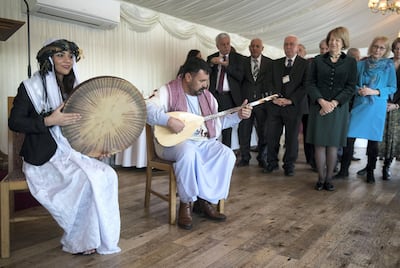
“These girls have been raped by a number of different men over a period of about five years. Some of them have only just escaped. Music is the centre of everything for them,” she said.
AMAR is working in five of the 10 refugee camps housing Yazidi survivors, but Lady Nicholson said the aim was to reach more.
“Music is probably one of the most therapeutic things of all,” she said. “I would like to get music into every refugee camp in the globe.”



